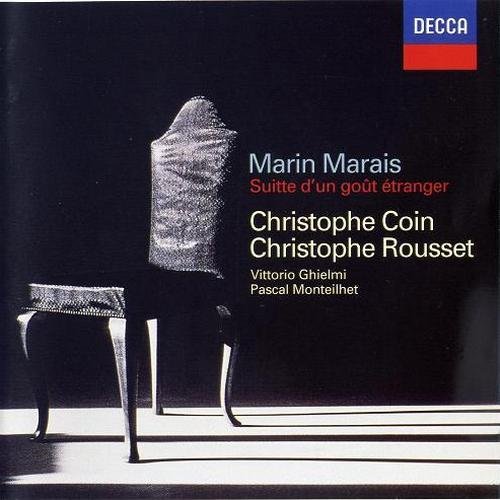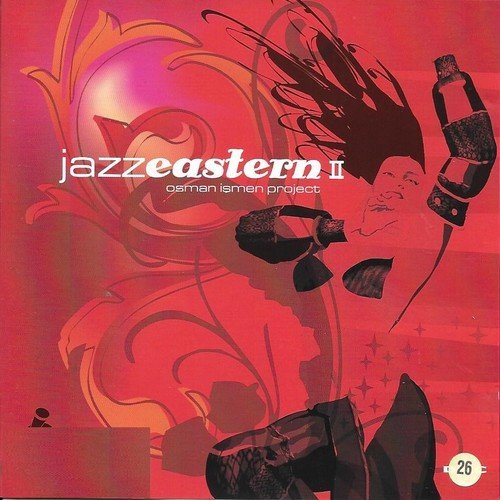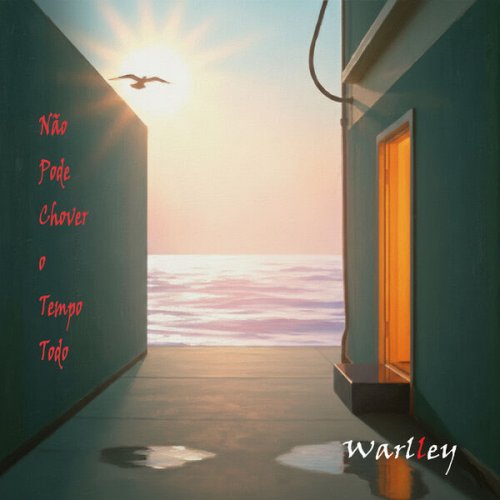Christophe Coin, Christophe Rousset, Vittorio Ghielmi, Pascal Monteilhet - Marin Marais - Suitte d'un gout etranger (1998)

Artist: Christophe Coin, Christophe Rousset, Vittorio Ghielmi, Pascal Monteilhet
Title: Marin Marais - Suitte d'un gout etranger
Year Of Release: 1998
Label: Decca
Genre: Classical, Baroque
Quality: FLAC (image+.cue,log,scans)
Total Time: 01:17:36
Total Size: 531 Mb
WebSite: Album Preview
Tracklist: Title: Marin Marais - Suitte d'un gout etranger
Year Of Release: 1998
Label: Decca
Genre: Classical, Baroque
Quality: FLAC (image+.cue,log,scans)
Total Time: 01:17:36
Total Size: 531 Mb
WebSite: Album Preview
01. Marche Tartare 02:21
02. Allemande 01:59
03. Sarabande 02:29
04. La Tartarine 02:08
05. Feste Champêtre 05:06
06. Gigue la Fleselle 01:29
07. Rondeau le Bijou 04:17
08. Le Tourbillon 01:36
09. L’Uniforme 02:48
10. Allemande 01:16
11. Allemande pour le sujet, et Gigue pour la Basse 01:18
12. Allemande L’Asmatique 01:33
13. Muzette 02:21
14. Caprice ou Sonate 05:51
15. Le Labyrinthe 13:05
16. Allemande la Bizare 03:46
17. La Minaudiere 01:52
18. Allemande la Singuliere 01:48
19. L’Arabesque 03:30
20. Allemande la Superbe 04:08
21. La Reveuse 04:29
22. Marche 01:51
23. Gigue 01:24
24. Le Badinage 04:56
French composers of the seventeenth and early eighteenth centuries delighted in adorning their pieces with foreign, in particular, Italian, elements, often calling attention to them in the titles. Among the most subtle transalpine stylists was Francois Couperin, who was refining the ‘French style’ and publishing his legacy in the form of harpsichord and chamber music. His contemporary, Marin Marais, contributed his own subtle essay in the exotic, a “Suitte d’un gout etranger” published in his Fourth Book of Pieces de une et a trois viole (1717), nearly 30 years after his First Book (the epitome of French viol playing) had appeared.
In order to bring the subtleties of music intended to be perceived as in a gout etranger to life, a performer must first master the traditional French baroque style. Christophe Coin has done that, both technically and musically, to a degree matched by no other viol player of today. He is able to bend the music endlessly to his will as only a master can do, producing an individual interpretation while illuminating the music on its own terms. This recording encompasses an astonishing range of moods and effects: he sings (“Fetes champetres”), he swaggers (“La fleselle”), he soars (“Caprice”). He revels in the resonance of Marais’s exquisite chordal writing (“Sarabande” and “Muzette”) and takes time when it suits the music – always just the right amount (too much would sap the music, too little would betray a lack of sensibilite and too frequent would render his performances cliched). He can be rhetorical (“Fetes champetres”) but is equally at home with the saucy “Tartarine”. He is a virtuoso of the first rank (amply in evidence in the “Tourbillon” and the marathon “Labyrinthe”), paying attention to the smallest detail – the syncopations of the allemandes (“L’asmatique” and “La singuliere”), the echoes in the majestic “Marche tartate” and the graceful “Arabesque”. He conjures visions in the Rameau-esque “Minaudiere” and the “Allemande la superbe”.
Central to French viol playing is mastery of the melancholy; so much of the repertory is in minor keys and within the range of the human voice. For performers it is the most revealing of all musical ‘affects’ and Coin has the character and conviction never to allow it to degenerate into self-indulgence. In his hands such pieces as the rondeaux popularized in the film, Tous les matins du monde (“L’arabesque”, “Le reveuse” and “Le badinage”), and “Le bijou” are elegant and poetic.
With a fine team of accompanists, Christophe Rousset (always moulding his playing to Coin’s bow strokes, notably in the “Allemande la bizare”), Vittorio Ghielmi (whose shuddering low notes in the “Rondeau le bijou” are especially effective) and Pascal Monteilhet (whose guitar playing contributes so much to the “Sarabande”), Coin provides entertainment listeners will want to revisit again and again, and sets new standards for viol players today. -- Gramophone
In order to bring the subtleties of music intended to be perceived as in a gout etranger to life, a performer must first master the traditional French baroque style. Christophe Coin has done that, both technically and musically, to a degree matched by no other viol player of today. He is able to bend the music endlessly to his will as only a master can do, producing an individual interpretation while illuminating the music on its own terms. This recording encompasses an astonishing range of moods and effects: he sings (“Fetes champetres”), he swaggers (“La fleselle”), he soars (“Caprice”). He revels in the resonance of Marais’s exquisite chordal writing (“Sarabande” and “Muzette”) and takes time when it suits the music – always just the right amount (too much would sap the music, too little would betray a lack of sensibilite and too frequent would render his performances cliched). He can be rhetorical (“Fetes champetres”) but is equally at home with the saucy “Tartarine”. He is a virtuoso of the first rank (amply in evidence in the “Tourbillon” and the marathon “Labyrinthe”), paying attention to the smallest detail – the syncopations of the allemandes (“L’asmatique” and “La singuliere”), the echoes in the majestic “Marche tartate” and the graceful “Arabesque”. He conjures visions in the Rameau-esque “Minaudiere” and the “Allemande la superbe”.
Central to French viol playing is mastery of the melancholy; so much of the repertory is in minor keys and within the range of the human voice. For performers it is the most revealing of all musical ‘affects’ and Coin has the character and conviction never to allow it to degenerate into self-indulgence. In his hands such pieces as the rondeaux popularized in the film, Tous les matins du monde (“L’arabesque”, “Le reveuse” and “Le badinage”), and “Le bijou” are elegant and poetic.
With a fine team of accompanists, Christophe Rousset (always moulding his playing to Coin’s bow strokes, notably in the “Allemande la bizare”), Vittorio Ghielmi (whose shuddering low notes in the “Rondeau le bijou” are especially effective) and Pascal Monteilhet (whose guitar playing contributes so much to the “Sarabande”), Coin provides entertainment listeners will want to revisit again and again, and sets new standards for viol players today. -- Gramophone
![Amal Murkus, Alessandro Sgobbio - تنفُّس Breathing (2026) [Hi-Res] Amal Murkus, Alessandro Sgobbio - تنفُّس Breathing (2026) [Hi-Res]](https://img.israbox.com/img/2026-02/12/9poaluplwioed8qjbmjfl2ajb.jpg)
![Angelo Moore - The Medicine Cabinet (2026) [Hi-Res] Angelo Moore - The Medicine Cabinet (2026) [Hi-Res]](https://www.dibpic.com/uploads/posts/2026-02/1770633721_61lemna6xtl.jpg)

![Ettore De Carolis - Dipingi di giallo il tuo poliziotto (Original Soundtrack) (2026) [Hi-Res] Ettore De Carolis - Dipingi di giallo il tuo poliziotto (Original Soundtrack) (2026) [Hi-Res]](https://img.israbox.com/img/2026-02/09/r8pq1f4pzhnkp2uy0b3vwlie6.jpg)
![Laura Anglade - Get Out of Town (Deluxe) (2026) [Hi-Res] Laura Anglade - Get Out of Town (Deluxe) (2026) [Hi-Res]](https://www.dibpic.com/uploads/posts/2026-02/1770950244_kznexew2l78jj_600.jpg)

![Seán Mac Erlaine, Caoimhín Ó Raghallaigh - Old Segotia (2025) [Hi-Res] Seán Mac Erlaine, Caoimhín Ó Raghallaigh - Old Segotia (2025) [Hi-Res]](https://img.israbox.com/img/2026-02/13/69rfun7bj67wruna9muyohy0g.jpg)

![John Coltrane - "Live" At The Village Vanguard (1962) [2022 DSD256] John Coltrane - "Live" At The Village Vanguard (1962) [2022 DSD256]](https://www.dibpic.com/uploads/posts/2026-02/1770880537_folder.jpg)